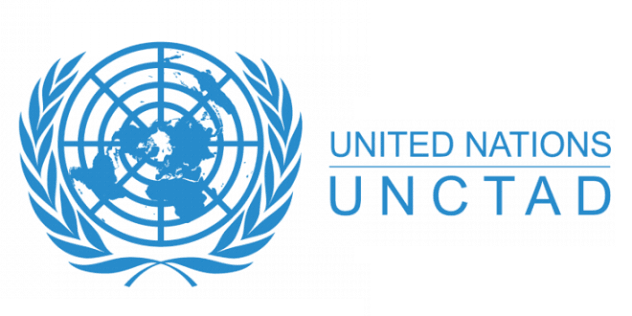GENEVA, November 25, 2025 (WAFA) – A new report by UN Trade and Development (UNCTAD) has warned that the prolonged Israeli military offensive and long-standing restrictions have driven the economy of the occupied Palestinian territory into its most severe contraction on record, erasing decades of development gains and deepening fiscal and social fragility.
The report, titled “Developments in the economy of the Occupied Palestinian Territory,” found that two years of military aggression and restrictions have triggered an unprecedented economic collapse, unfolding amid long-standing economic and institutional weaknesses, with serious social and environmental consequences.
UNCTAD said extensive damage to infrastructure, productive assets, and public services has reversed decades of socioeconomic progress. The resulting crisis is among the ten worst economic collapses globally since 1960, with the situation in Gaza described as the most severe economic crisis on record.
The report noted that plunging revenues and the withholding of fiscal transfers by the Israeli government have sharply limited the Palestinian government’s ability to maintain essential services and invest in recovery, at a time when large-scale spending is required to rebuild damaged infrastructure and address worsening environmental and social conditions. The escalation has pushed the economy from prolonged decline into a phase of near-total collapse, with wide-ranging economic, social, humanitarian, and environmental impacts.
By the end of 2024, Palestinian gross domestic product had fallen back to its 2010 level, while GDP per capita returned to its 2003 level, effectively erasing 22 years of development in less than two years, according to the report.
In Gaza, around 2.3 million people have lived for nearly two decades under severe restrictions on trade, movement, and access to resources within a densely populated area. Limited entry of goods, restrictions on inputs and technology, and repeated military operations have dismantled productive capacity and created near-total dependence on external assistance.
UNCTAD reported that Gaza’s GDP contracted by 83 percent in 2024 compared to 2023, with a cumulative decline of 87 percent over 2023–2024, shrinking to $362 million. GDP per capita fell to $161, among the lowest in the world, representing just 4.6 percent of the West Bank’s per capita GDP, down from near parity in 1994.
The report explained that widespread destruction of infrastructure, loss of productive capacity, and population displacement have caused lasting damage to human capital. Disruptions to education and basic services are expected to have long-term impacts on livelihoods and societal resilience.
UNCTAD warned that even with substantial aid, recovery to pre-October 2023 GDP levels in Gaza could take decades. It stressed that durable ceasefire conditions and urgent humanitarian access are essential to enable any meaningful recovery.
In the West Bank, the report said expansion of settlements and movement restrictions continue to fragment the territory, disrupt trade and investment, and limit access to land, resources, and markets. These restrictions affect more than 3.3 million people, increasing transport costs, lengthening travel times, and limiting access to employment, education, and healthcare. Since late 2023, intensified movement constraints have contributed to a 17 percent contraction in GDP and an 18.8 percent decline in GDP per capita, returning to levels last seen in 2014 and 2008, respectively.
The fiscal situation has also deteriorated sharply. Between January 2019 and April 2025, cumulative fiscal deductions and withheld revenues were estimated at $1.76 billion, equivalent to 12.8 percent of GDP in 2024 and 44 percent of total net revenues. Alongside reduced donor support and a shrinking tax base, these shortfalls have constrained the government’s ability to pay salaries, sustain public functions, and deliver basic services.
UNCTAD estimates that more than $70 billion will be needed to reconstruct and recover Gaza, underscoring the scale of investment required.
The report called for immediate and substantial international action to halt the economic freefall, respond to the humanitarian crisis, and lay the foundations for recovery. It urged the adoption of a comprehensive recovery plan, coordinated international assistance, the restoration of fiscal transfers, and measures to ease restrictions on trade, movement, and investment.
M.N










